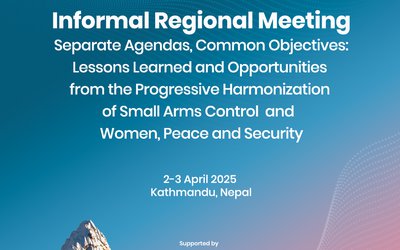More on International






As reported by Agence France-Presse on Thursday, the US Department of State removed Nepal's Maoist party from its blacklist of terrorist organizations.
"After a thorough review," says the State Department's official statement, it was found out that the party was "no longer engaged in terrorist activity that threatens the security of US nationals or US foreign policy."
The Communist Party of Nepal (Maoist) was founded in 1994, and from 1996 through 2006 it waged a bloody insurgency against the government, during which about 16,000 people died. In 2003, the party was included into the State Department's list of foreign terrorist organizations.
In 2006, Nepali Maoists laid down their arms and entered legal politics. Two years later, the party won the national elections, dethroned the King, and has been the ruling party ever since. At present, after some internal splits within the party, both the ruling party and the government of Nepal are undergoing through a serious crisis, one of the most visible results of it being the failure to adopt a new constitution in spring this year.
The very fact that the ruling party of a UN member country has been removed from the terror list comes as no surprise. What is surprising, though, is the fact that it took the US State Department four years after the party won the national elections to make this step.
The explanation is twofold. First, its inclusion into the terror list back in 2003 was not due to the terrorist activity within the country resulting in thousands of Nepali deaths (for that the US State Department rarely cares), but due to the murder of two US embassy security guards.
This is demonstrated by the State Department's wording that the party is "no longer engaged in terrorist activity that threatens the security of US nationals or US foreign policy."
But, on the other hand, what really matters and what caused the delay is the very fact that the party is Maoist, and therefore China-leaning. Its emergence to power in Nepal highlighted a strategic shift in the regional balance of power – in addition to a series of anti-Indian strongholds in the Indian Ocean (the so called "string of pearls") China received a foothold enabling it to exert its influence in India's north, in close vicinity to disputed territories in Kashmir and Indian state Arunachal Pradesh, claimed by China as part of its territory.
Chinese growing influence in Asia has become one of the gravest concerns of US foreign policy. But in the case of Nepal, it has to face a dilemma – whether to continue listing the ruling party as a terrorist organization and thus farming out the whole country to China, or engage in a dialogue with the organization formerly listed as "terrorist" in order to start its own game on the prospective battlefield of regional politics. The State Department has chosen the latter.
Last but not least, the delay in lifting the ruling party of a sovereign state from the terror list once again demonstrates the old "our SOB" approach of the US foreign policy. In State Department's judgment, there are "good terrorists" and "bad terrorists", the former using terror tactics against America's foes, the latter doing the same against the US interests.
It was reported recently that the US is mulling over the possibility of lifting Iranian Mujahadeen-e-Khalq (People's Mujahadeen). Not because they ceased to be terrorist, but for the simple reason that its main foe is the ruling regime in Iran, which suits Washington perfectly.
One may also add the constant flirting of US lawmakers and the State Department with Baloch separatists in Pakistan up to supporting the idea of secession and forming an "independent Balochistan", which would provide the US with levers to exert pressure on three countries – Pakistan, Iran and Afghanistan.
And definitely, the same "our SOB" approach is clearly demonstrated by the US and its allies' attitude towards Syria, where the government's suppression of the Saudi- and Turkey-sponsored insurgency is labeled as "state terrorism" while real terrorist attacks by insurgents go by and large unnoticed.
So, Nepal's ruling party may even consider itself lucky that despite its links with China, it has at last gotten rid of the "terrorist" label.








